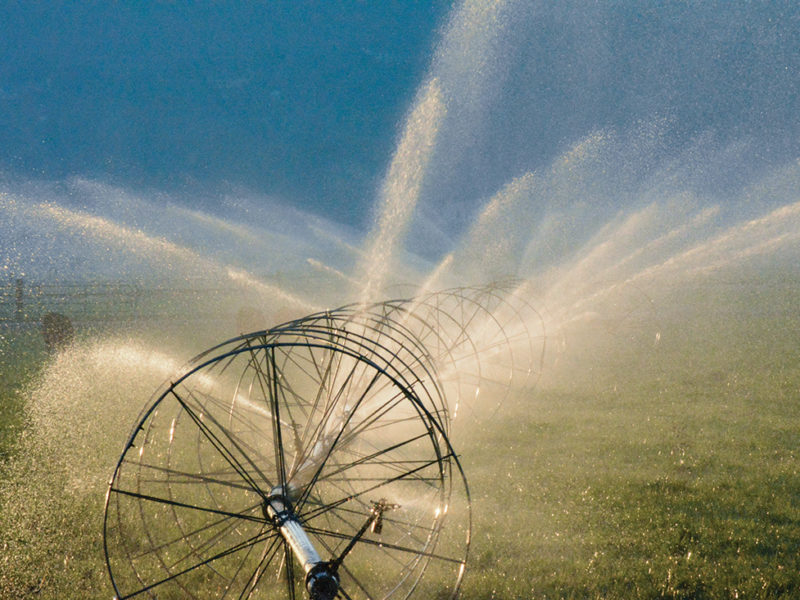KAMLOOPS – With a shocking lack of licences issued five years into BC’s groundwater licensing regime, the BC Cattlemen’s Association has sent the province a six-point action plan to forestall disaster next year.
The province says it’s not going to be giving non-domestic groundwater users any more time to apply for a groundwater licence and maintain their historical priority under the new first in time, first in right (FITFIR) groundwater management system.
This could result in thousands of existing users losing their historical priority and be treated as new users, possibly with a reduced allocation.
“The BC Cattlemen’s Association would like to see every rancher who wants a water licence be able to successfully obtain one,” BCCA president Renee Ardill writes in a May 31 letter to agriculture minister Lana Popham, natural resources minister Katrine Conroy, whose ministry oversees FrontCounter BC which processes the licence applications, and environment minister George Heyman.
The letter urges the province to simplify the application process and support producers who need it; extend the application deadline; prioritize applications from farmers and ranchers; and streamline the approval process, expediting applications for existing users.
BCCA general manager Kevin Boon says there have been few changes since the province introduced ranchers to the licensing process at their annual general meeting in Penticton in 2016.
Delegates sat through a two-hour presentation accompanied by some 80 pages of handouts.
“That 80-page handout on how to fill out an application says a lot,” he says.
There have been just over 4,000 applications since then and fewer than 1,300 licences granted.
While there have been some improvements in the process, they’re nowhere near what’s needed, says Boon. This is why the first requests on the action plan are for a simpler application and greater assistance to producers in filling them out.
“I want to be clear that it is not the fault of the FrontCounter employees,” says Boon. “But we would like someone from the Ministry of Agriculture who understands our needs to help producers with their application.”
Boon says the application requires far more detail than is necessary.
“BC Cattlemen’s has always supported the well licensing process. It’s a way for our members to secure their historic water rights, and for the province to better allocate water, but the government is being overzealous,” he says.
A rancher with two wells on two different pastures is required to calculate the details of how water from each well will be used.
“That’s impossible to predict one year to the next,” says Boon.
A rancher might rotate cows into a pasture for the early spring and summer and irrigate and mow for the rest of the year, but next year he might plow and reseed that pasture. The two activities require different volumes of water.
“These application requirements have the potential to really impact a rancher’s choice of management practices,” says Boon.
Boon says the applications should be as simple as “100 cows use 30 gallons of water a day,” giving the rancher a licence for 3,000 gallons a day.
“It doesn’t matter which one of those wells it comes out of, when they are both on your licence,” he says.
Hours online
Since the application process is entirely online, it can take hours for ranchers to navigate the details, especially with the speed of rural Internet. Their reality doesn’t always match the FrontCounter BC estimate that applications can be completed in less than 90 minutes.
“If a rancher can’t get their application completed after six hours, he is not going to be eager to sit down and try it again.” Boon points out.
BCCA would like to see the application deadline extended until the province has sorted out the livestock watering regulations and operators can provide an overview of their water needs.
BCCA would also like government to streamline the review and approval process to give priority to applications from existing users before approving new applications from non-farm users, such as bottling plants. Within these, food and livestock production should be top of the heap because they’re an essential services.
There is also a concern that applications for a seasonal use, such as a dugout built to capture run off water, will be subjected to the same long waiting time that groundwater licences have suffered.
“The rancher with that dugout may not get approval for four years and that severely restricts his management plans,” notes BCCA assistant general manager Elaine Stovin.
Boon says that ranchers have lost faith after experiencing this difficult start up and trust drops even further when ranchers know the low number of licences that have actually issued. There is no communication and applicants have no idea if their paperwork has even been received for processing.
“When we phone to ask, we are told if our cheque has been cashed that means they’ve received the application,” says Boon.


 Farmers struggle to get insurance coverage Insurance
Farmers struggle to get insurance coverage Insurance